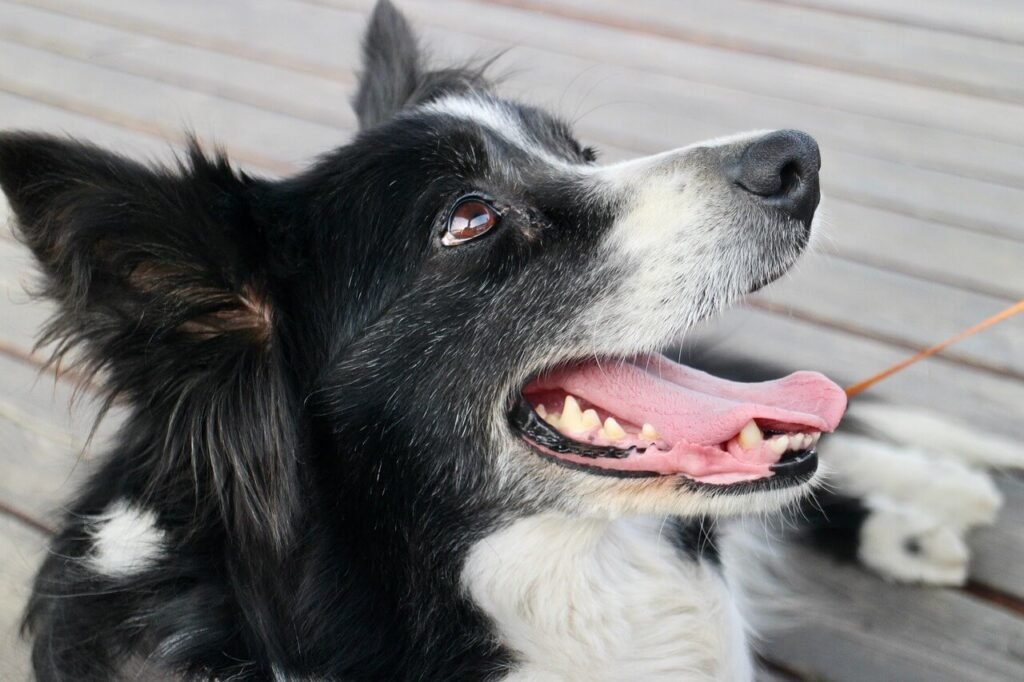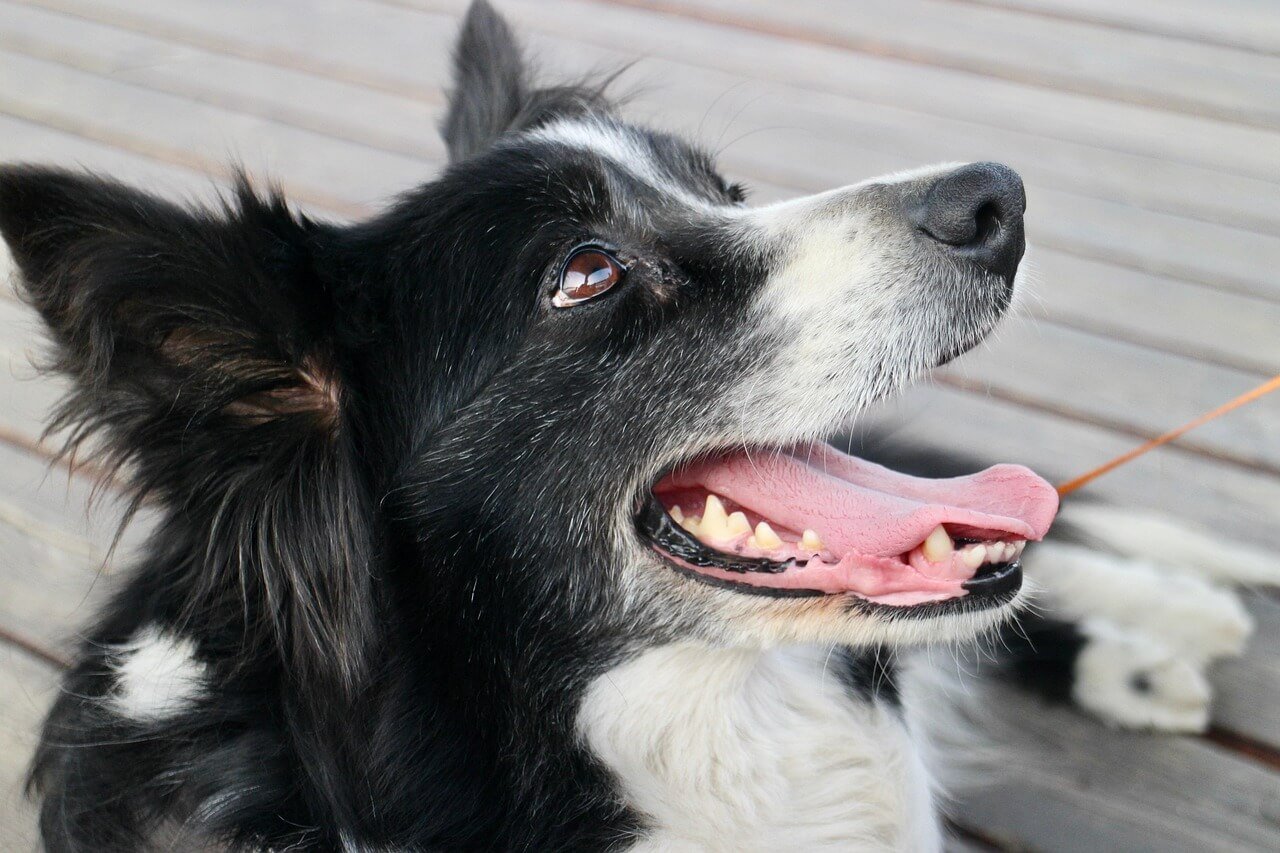Why Is My Dogs Mouth Cold? Understanding the Mystery Behind Your Pup’s Chilly Lips
If you’ve ever noticed your dog’s mouth feeling unusually cold, you might have wondered whether it’s normal or a cause for concern. Dogs communicate much about their health through subtle changes in their body, and their mouth temperature is no exception. While a cold nose is often seen as a sign of good health, what about a cold mouth? In this guide, we’ll explore the reasons why your dog’s mouth might feel cold, how to differentiate between harmless and concerning signs, and what steps you can take to ensure your furry friend stays healthy and happy.
Common Reasons Why Your Dog’s Mouth Feels Cold
A cold mouth in dogs isn’t always a red flag—it can be perfectly normal depending on the circumstances. Here are some common explanations for why your dog’s mouth might feel chilly:
Environmental Temperature : If your dog has been outside in cooler weather, their mouth may reflect the ambient temperature.
Normal Circulation Patterns : Dogs naturally experience fluctuations in blood flow, which can make certain areas, like their mouth, feel cooler at times.
Recent Drinking : After drinking water, especially if it’s cold, your dog’s mouth will naturally feel colder for a short period.
Relaxation or Sleep : During restful states, a dog’s body temperature may slightly drop, leading to a cooler mouth.
Natural Variation : Just like humans, dogs can experience minor temperature changes without any underlying issues.
In most cases, a cold mouth is nothing to worry about. However, if accompanied by other symptoms, it may warrant further investigation.
Signs That a Cold Mouth Could Indicate a Health Issue
While a cold mouth is often harmless, there are instances where it could signal an underlying problem. Pay attention to these signs that might accompany your dog’s cold mouth:
Lethargy or Weakness : If your dog seems unusually tired or unresponsive, it could indicate a systemic issue.
Pale Gums : Pale or discolored gums alongside a cold mouth may suggest poor circulation or anemia.
Shivering or Trembling : These behaviors paired with a cold mouth could point to hypothermia or shock.
Loss of Appetite : A sudden refusal to eat might indicate discomfort or illness.
Cold Extremities : If your dog’s paws, ears, or tail also feel unusually cold, it could be a sign of reduced blood flow.
If you notice any combination of these symptoms, it’s important to consult your veterinarian promptly to rule out serious conditions.
Check this guide 👉Understanding Dog Mouth Ulcers: Best 7 Health Tips!
Check this guide 👉Understanding Dog Mouth Anatomy: Best 7 Expert Tips!
Check this guide 👉Understanding Dog Mouth Cancer Life Expectancy: Best 7 Tips!

Normal Causes of a Cold Mouth | Potential Warning Signs |
|---|---|
Cooler environmental temperatures | Lethargy or weakness |
Recent water consumption | Pale gums |
Relaxation or sleep | Shivering or trembling |
Natural temperature fluctuations | Loss of appetite |
Normal circulation patterns | Cold extremities |
How to Check Your Dog’s Overall Health at Home
Monitoring your dog’s health regularly can help you catch potential problems early. Here are some simple ways to assess their well-being:
Check Their Gums : Healthy gums should be pink and moist. Press gently to see if color returns quickly after blanching.
Feel Their Body Temperature : Use the back of your hand to check for warmth on their belly or inner thighs.
Observe Behavior : Look for changes in energy levels, appetite, or social interactions.
Examine Their Coat : A shiny, smooth coat typically indicates good health, while dull or patchy fur may signal nutritional deficiencies.
Listen to Their Breathing : Rapid or labored breathing could indicate respiratory issues or distress.
Regular health checks allow you to stay proactive and address concerns before they escalate.
Tips to Keep Your Dog Comfortable and Healthy
Ensuring your dog stays comfortable and in optimal health can prevent unnecessary worries about their mouth temperature. Here are some practical tips:
Provide a Warm Environment : Ensure your dog has access to cozy bedding and shelter, especially during colder months.
Offer Fresh Water : Always provide clean, fresh water to keep them hydrated and regulate their body temperature.
Maintain a Balanced Diet : Feed your dog high-quality food tailored to their age, size, and activity level.
Encourage Exercise : Regular physical activity promotes good circulation and overall well-being.
Schedule Routine Vet Visits : Annual check-ups help detect and address potential issues early.
By following these tips, you can support your dog’s health and reduce the likelihood of unusual symptoms like a persistently cold mouth.
Protecting Your Dog from the Cold
Hypothermia can occur when a dog’s body temperature drops too low, often due to prolonged exposure to cold environments. While a cold mouth isn’t always linked to hypothermia, taking preventive measures ensures your dog stays safe in chilly conditions.
Limit Outdoor Time in Cold Weather : Keep outdoor activities short during winter months or extreme cold spells.
Provide Insulated Bedding : Use warm, soft bedding to create a cozy resting area for your dog indoors.
Use Dog Clothing : For smaller breeds or dogs with thin coats, consider using sweaters or jackets designed for pets.
Dry Them After Exposure to Wet Conditions : If your dog gets wet in snow or rain, dry them thoroughly to prevent heat loss.
Monitor Older or Sick Dogs : Senior dogs and those with health issues are more vulnerable to cold-related problems.
By taking these precautions, you can help your dog stay warm and reduce the risk of hypothermia or other cold-related issues.
Debunking Misconceptions About Dogs and Cold Mouths
There are many myths surrounding a dog’s body temperature and what it indicates about their health. Separating fact from fiction helps you better understand your furry friend’s needs.
Myth: A Cold Mouth Always Means a Healthy Dog : While a cold mouth can be normal, it doesn’t guarantee your dog is healthy overall.
Myth: A Warm Mouth Indicates Fever : A warm mouth alone isn’t enough to diagnose a fever—only a thermometer reading can confirm this.
Myth: Dogs Can’t Get Too Cold : Even though dogs have fur, they’re still susceptible to cold-related illnesses like hypothermia.
Myth: Drinking Water Makes Their Mouth Permanently Cold : The cooling effect of water usually lasts only a short time after drinking.
Myth: Only Certain Breeds Have Cold Mouths : Any breed can experience a cold mouth depending on environmental factors or behavior.
Understanding these truths allows you to focus on real signs of health rather than outdated beliefs.
Exploring the Unique Quirks of Your Dog’s Mouth
A dog’s mouth is a fascinating part of their anatomy, full of interesting traits that set them apart from humans. Here are some fun facts to deepen your appreciation for your pup’s unique features:
Dogs Sweat Through Their Paws, Not Their Mouths : Unlike humans, dogs rely on panting and paw pads to regulate body temperature.
Their Saliva Has Healing Properties : Dog saliva contains enzymes that can help clean minor wounds, though licking isn’t always recommended.
Dogs Have More Teeth Than Humans : Adult dogs typically have 42 teeth, compared to a human’s 32.
Taste Buds Are Limited Compared to Humans : Dogs have around 1,700 taste buds, while humans have approximately 9,000.
Cold Mouths May Be Linked to Panting : After vigorous panting, evaporation can temporarily cool the tissues inside their mouth.
These quirky facts highlight just how remarkable your dog’s mouth truly is—and why it deserves a little extra attention now and then.
Frequently Asked Questions About a Dog’s Cold Mouth
Is it normal for my dog’s mouth to feel cold sometimes?
Yes, it’s usually normal and can result from environmental factors, recent drinking, or natural temperature fluctuations.
Should I be worried if my dog’s mouth is always cold?
If their mouth is consistently cold and accompanied by other symptoms like lethargy or pale gums, consult your vet.
Can a cold mouth mean my dog is sick?
Not necessarily, but it could indicate illness if paired with warning signs such as shivering, weakness, or loss of appetite.
How can I tell if my dog is too cold?
Look for signs like shivering, curling up excessively, or seeking warmth. Cold extremities and pale gums are also indicators.
Does a cold mouth affect my dog’s eating habits?
Typically, no. However, if your dog refuses food or shows discomfort while eating, it’s worth investigating further with a vet.
Stay Observant and Trust Your Instincts
While a cold mouth in dogs is often harmless, understanding the possible causes and recognizing warning signs empowers you to act when necessary. By staying observant and maintaining open communication with your veterinarian, you can ensure your dog remains healthy and happy. Remember, every dog is unique, and even small changes in their behavior or body can provide valuable insights. With love, care, and attention, you’ll continue to nurture the bond you share with your furry companion—and maybe even discover new quirks along the way!
Do Cats Have Taste Buds? Best 7 Expert Tips! – Discover how cats experience flavors and why their taste is so unique.
Do Dogs Have Taste Buds? Best 7 Expert Tips! – Discover how dogs experience taste, their preferences, and what it means for their diet and health.
Can Cats Taste Sweet? Best 7 Expert Tips! – Discover why cats can’t taste sweetness, how it affects their diet, and tips to keep them healthy and happy.
Can Dogs Taste Sweet? Best 7 Expert Tips! – Discover how dogs perceive sweetness, which foods are safe, and tips to manage their sweet cravings responsibly.





